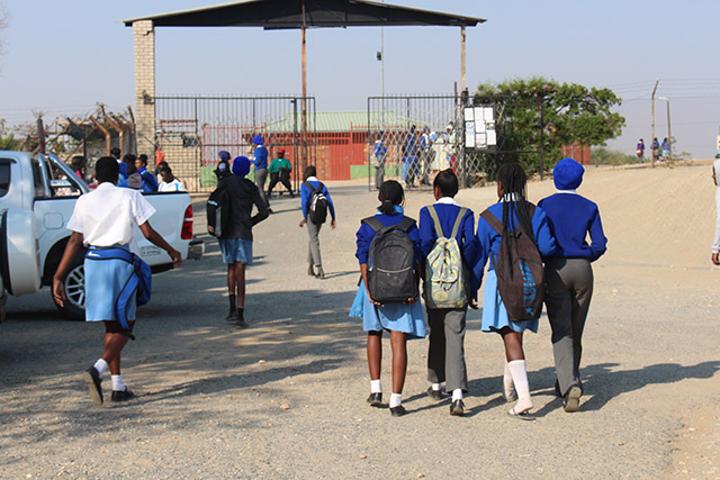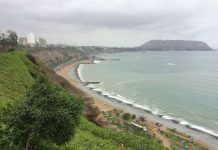Africa-Press – Namibia. CHARMAINE NGATJIHEUE and SAKEUS IIKELA SCHOOLS nationwide are already faced with a shortage of space – specifically for pupils in grades 1 and 8. This comes as Namibian schools reopen after a long holiday today. A number of parents last week rushed to various schools in an attempt to have their children placed in grades 1 and 8.
The Khomas regional directorate of education, arts and culture late last week released a memo saying it is faced with a shortage of space for pupils in grades 1 and 8, as well as some other grades, for 2022.
According to the memo, there will be a head-count from Wednesday to Friday. “Because of the above, we will only be able to assist with placement after the headcount as from Tuesday, 18 January,” it reads.
In the meantime, parents have been encouraged to visit schools for the placement of pupils of all grades. “The Grade 7 pupils of 2021 should contact their previous schools to confirm where they were placed for Grade 8 for 2022,” the memo states.
The deputy director of programmes and quality assurance in the Khomas region, Paul Lewin, confirmed the memo yesterday, saying their main focus as a directorate is to place Grade 8 learners, but that they will also assist with the placement of pre-primary and Grade 1 pupils.
He said schools would provide the directorate with updated class lists of all grades by tomorrow, after which a physical headcount by staff members would be conducted. Lewin said the directorate is hopeful that space would be identified and pupils placed accordingly.
“The main aim of the headcount is to identify all available classrooms currently not in use, and to use them optimally. Our mandate is to provide accessible, equitable and quality education to all children of schoolgoing age. Thus, no child will be left on the street without an education,” he said.
Lewin said the process may take longer than anticipated due to logistical reasons, but eventually all pupils in the Khomas region will be placed. “That will be our approach: Khomas children first, before we take children from other regions. Every case will be dealt with on merit. Parents should note that pupils will be placed where space is available, and not according to preference of schools,” he said.
Lewin urged parents to be patient since the placement process can be very complex as children need to be placed according to their home language, field of study, proximity, and so forth.
ANNUAL OCCURRENCE Schools faced with a lack of space is an annual occurrence, with the ministry explaining that parents sometimes register their children late, while others have specific schools in mind.
Minister of education, arts and culture Anna Nghipondonka yesterday said as schools reopen for pupils today, the ministry would be able to assess the situation on the ground. She said the ministry would need to know which children have not been placed, after which regional education directors would have to find a solution.
“After the initial admission in July 2021, if a parent has a child who has not been placed in a certain grade, there is an admission committee at regional level where all the names of those children who are not placed are sent to, and when schools reopen, the regional office checks where places are available,” Nghipondoka said.
She said parents preferring certain schools pose a challenge. “The late application of parents is also a challenge. This is why we are saying it is now the prerogative of the regional office to place the pupils who have not been placed,” she said.
CONCERNED Popular Democratic Movement (PDM) secretary general Manuel Ngaringombe, in a statement issued yesterday, expressed, concern over the sustainability of free education without consistent funding.
Despite the increased enrolment recorded over the years as a result of the implementation of the free education concept, Ngaringombe said it has only brought schools more problems than solutions.
“The funding allocated to our public schools by the government to sustain free primary and secondary education is miniscule. Parents are still expected to fork out large amounts of money to settle contributions towards registration, stationery, and other expenses,” he said.
He said the government therefore needs to raise funds for free education. Ngaringombe called on the government to re-evaluate the blanket implementation of free primary and secondary education, and to make a concise determination of which sectors of public schooling need free education.
In his opinion, the current framework has watered down the quality of education, and was rushed when it was introduced in 2013. Ngaringombe said the government must this year prioritise the building of key infrastructure, such as classrooms, and ablution and sport facilities – especially at schools in the Zambezi, Kavango West, Kavango East, Ohangwena, and Kunene regions.
He also urged the government to speed up the rolling out of the e-learning programmes. Ngaringombe expressed his dismay at the events that led to the leaking of various Grade 11 and 12 NSSCO examination papers during last year, which subsequently led to the nullification of these examinations.
For More News And Analysis About Namibia Follow Africa-Press






